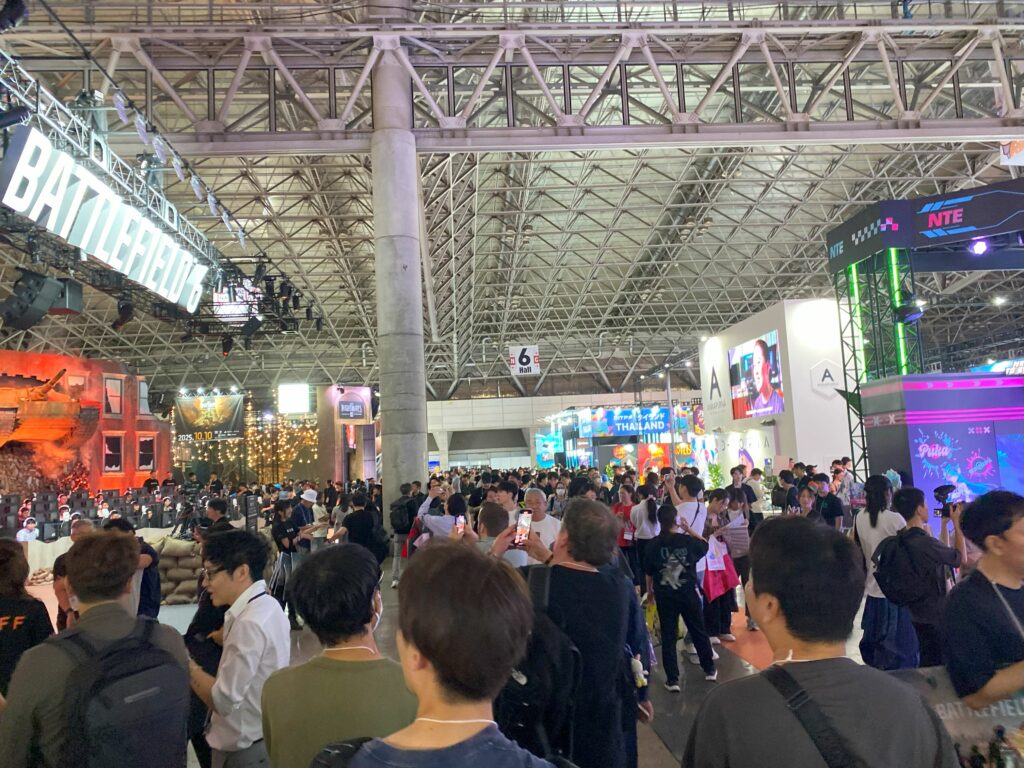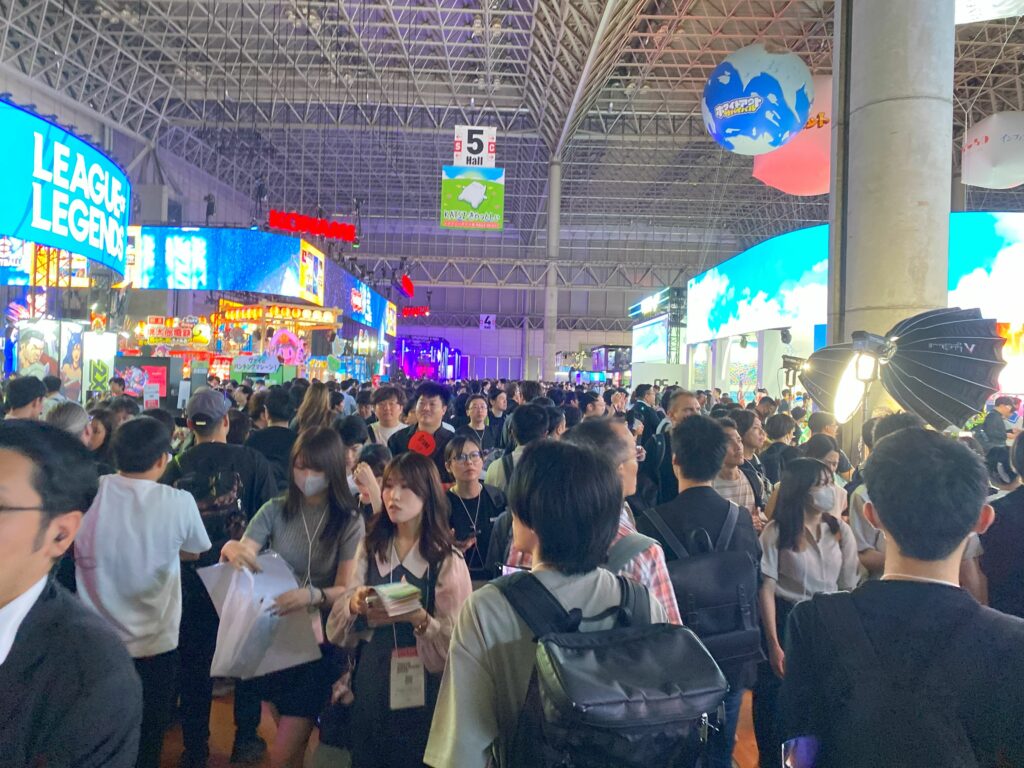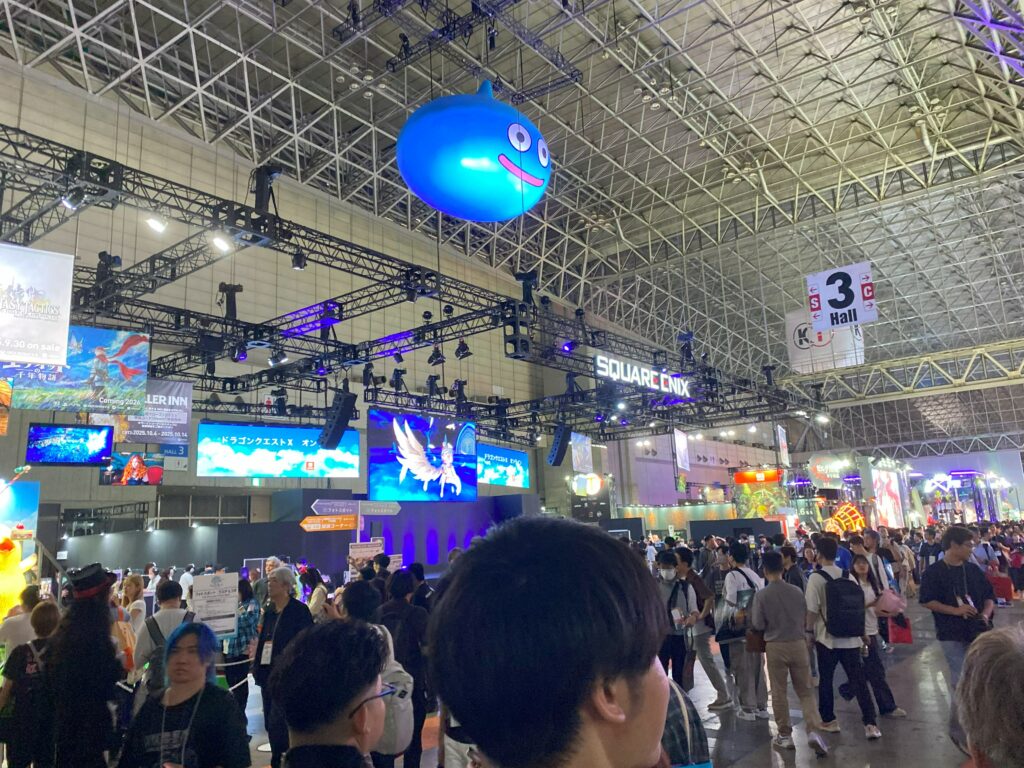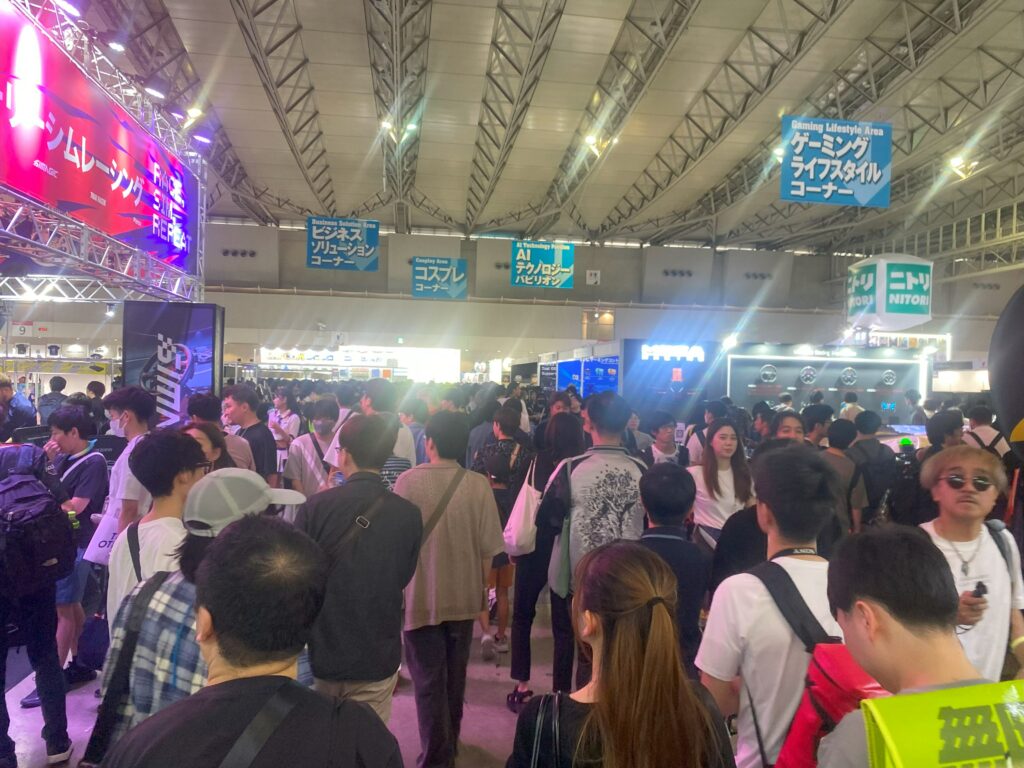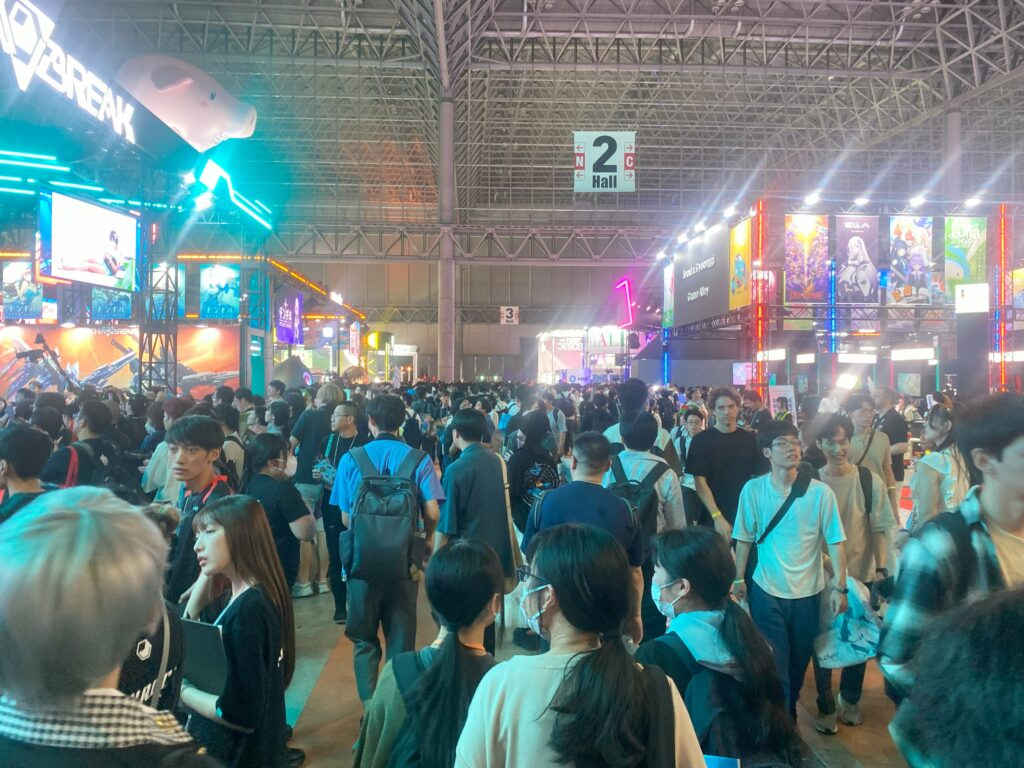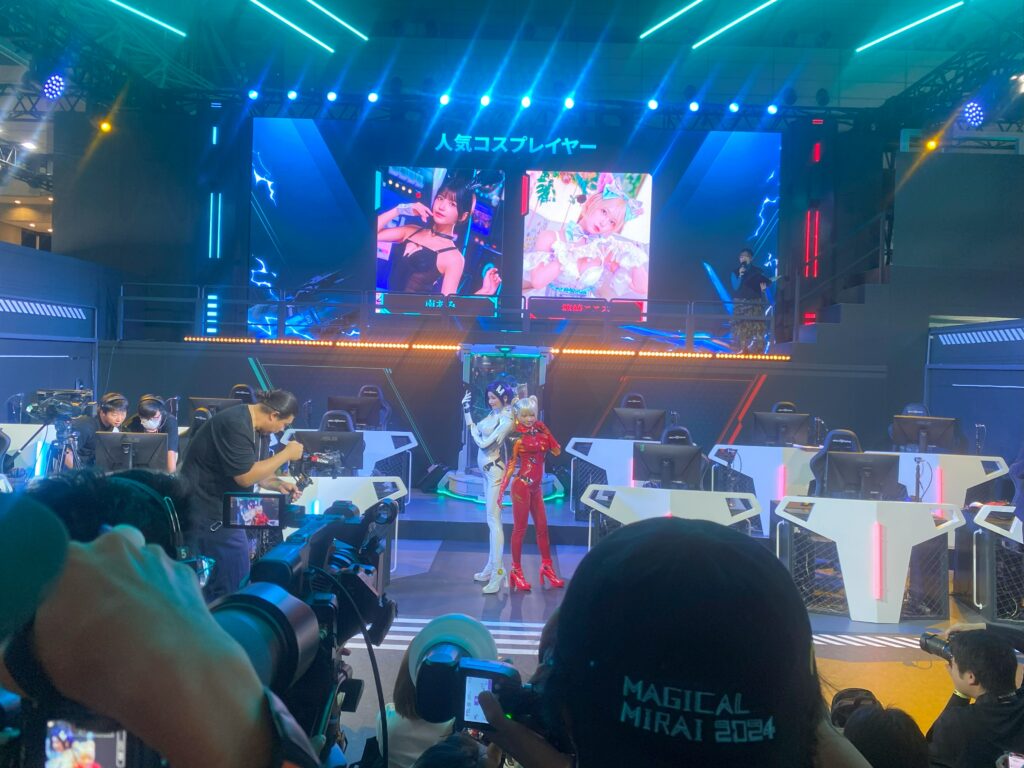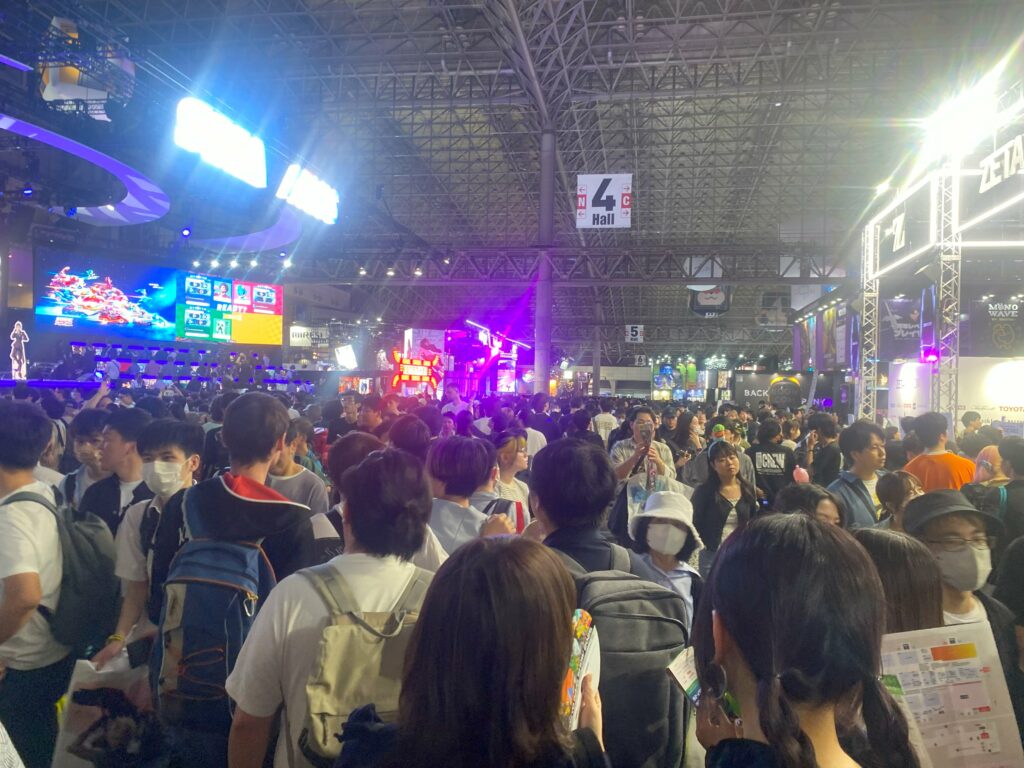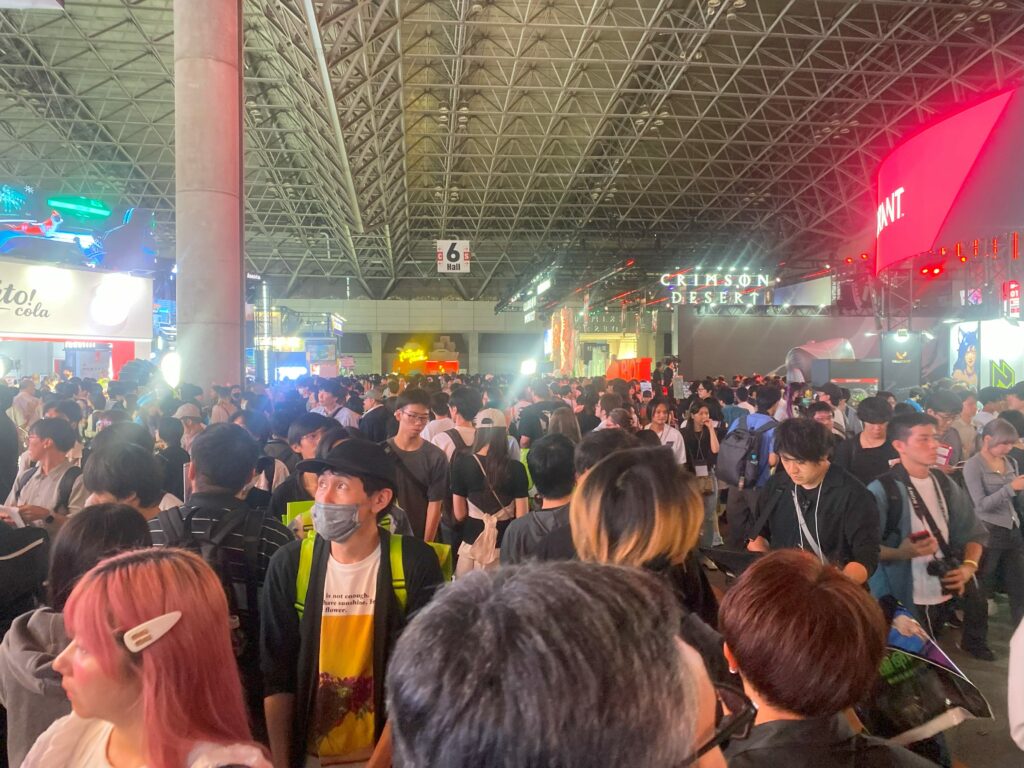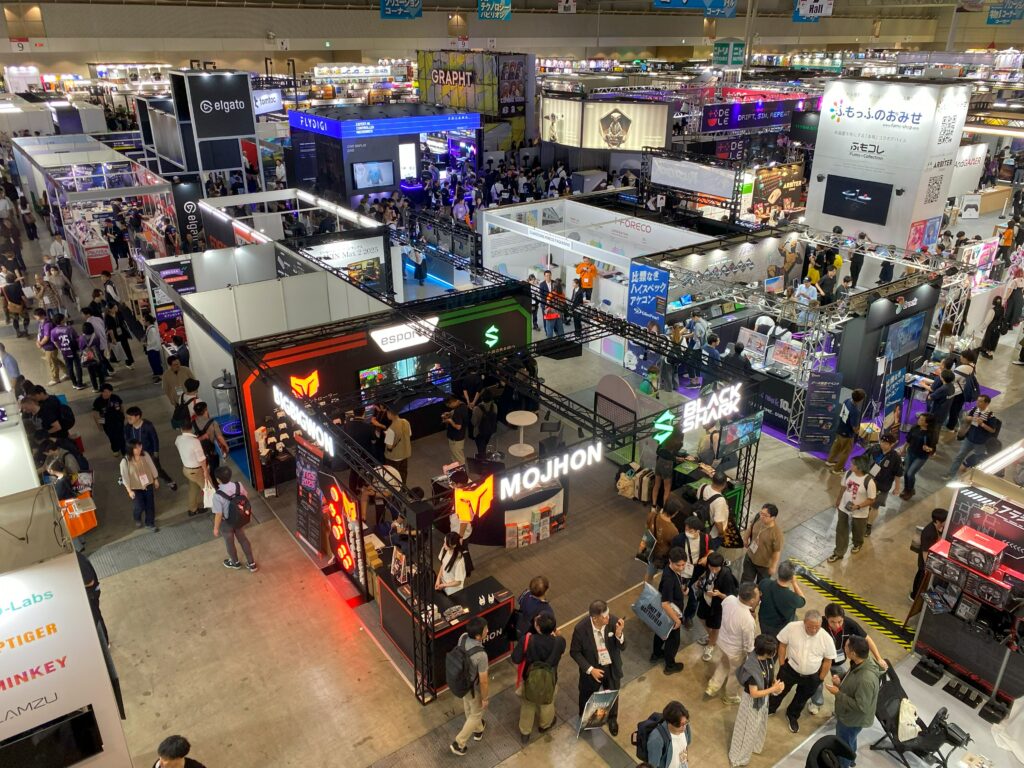From Thursday, September 25 to Sunday, September 28, Tokyo Game Show (TGS) 2025 was held at the Makuhari Messe. Renowned as Japan’s largest video game exhibition, TGS showcased the latest releases and unveiled the upcoming titles for video game franchises of every imaginable genre and scale. Selling out tickets completely on both of the general public days, a total of 263,101 gaming enthusiasts flocked to the venue for the chance to be the first to try their hands at the newest games. TGS was alive and vibrant throughout all areas with everything from massive AAA publishers holding large-scale presentations featuring gaming celebrities, to solo indie developers connecting one-on-one with visitors. Complete with a wide array of live programming, TGS offered something for every gamer no matter their preference. Reporters from Japanese MICE news outlet POP Inc. were on the scene to investigate the latest trends in gaming.
SEGA and Atlus fired on all cylinders this year with the quality of their lineup and the majesty of their exhibits. Leading the charge was the newly-released “Sonic Racing: CrossWorlds,” which had already started making waves in the gaming world. The latest entry in the popular series, “Crossworlds” puts a twist on the classic Sonic Racing format by implementing a multiverse aspect. Characters not only race through various worlds from SEGA all-star titles, but they now can warp between these worlds mid-race. In addition, all-new unprecedented crossovers have been announced featuring characters and tracks from the Mega Man, Minecraft, and even Spongebob Squarepants franchises. Visitors lined up in droves to playtest the collab racers, some of which who had yet to be released.
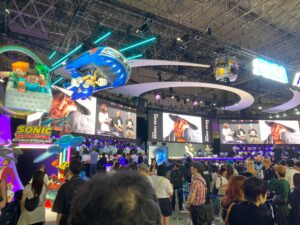
Continuing the trend of world premiere demos, Bandai Namco offered gamers the first chance to play their upcoming ball-rolling adventure, “Once Upon A Katamari.” The first entry in the beloved Katamari Damacy series in 14 years, “Once Upon” hails the return of the Prince of All Cosmos as he is once again tasked with rolling up all sorts of objects to help rebuild the night sky. This time, however, the Prince must travel back in time, from the age of the dinosaurs, to the Wild West, to ancient Japan, and beyond. Also, for the first time ever, “Once Upon A Katamari” introduces an online multiplayer mode, in which 4 players can compete in “KatamariBall” to determine who is the greatest roller of them all.
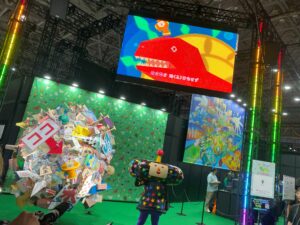
Building on the momentum from last year, LEVEL 5 presented a brand-new demo for their upcoming title, “Professor Layton and the New World of Steam.” Players had the chance to experience Professor Layton’s arrival in Steam Bison, the bustling industrial capital of the USA, as well as to solve several new puzzles. The demo concludes with Layton’s rendezvous with Luke, his apprentice, when the pair find themselves in a high-speed chase with a band of suspicious characters. The cliffhanger left players itching to discover how the story will develop, and it garnered much excitement for the upcoming release, which was announced to have been pushed back to 2026.
Furthermore, “INZAUMA ELEVEN: Victory Road,” the newest game in the popular soccer franchise, was also available for playtesting at TGS. Players could learn crucial soccer skills such as passing, guarding the goal, and stealing the ball and then apply this knowledge during an actual match versus a rival team. Special attacks and other fantasy elements made for a thrilling experience.

In the indie area, Fruitbat Factory, an independent localizer and publisher that focuses on Japanese games, displayed their lineup of published titles. Prominently featured was one of their most iconic games, “100% Orange Juice,” an online multiplayer luck-based board game in which players roll dice to determine the outcome of each and every encounter as they race to gather stars and defeat enemies in order to surpass their opponents. Originiall released in 2013, the game continues to receive constant updates and character DLCs and boasts a loyal playerbase. At TGS, Fruitbat Factory promoted yet another playable character to be added, bringing the roster to a grand total of 95.
Additionally, visitors had the opportunity to try the publisher’s next upcoming title, “ManaCollect 2.” The sequel to the original real-time competitive Minesweeper puzzle game, “ManaCollect 2” improves and expands upon the combat system’s offensive and defensive tactics.
One popular category at this year’s TGS involved games that are played with unorthodox controllers. Amongst the ubiquitous normal controllers and keyboards, unusual controllers drew a lot of attention in the in-person exhibition setting.
For example, a large crowd gathered around the Yamamu Games booth to watch challengers attempt to beat a level in “BB Adventure,” a game controlled by a balance ball. Players sit on the ball and bounce up and down in order to move the ball-shaped protagonist through an obstacle course. Cheers resounded among the spectators as they rooted for the challengers, and all parties en.
Developed by Bippinbits, “PVKK: Planetenverteidigungskanonenkommandant” brought a real-life cockpit modelled after that which controls the planetary defense cannon in the game. Players flipped switches, pulled levers, and rotated wheels on the giant cockpit control panel while attempting to fire the cannon at incoming enemy ships.
Students from Hokkaido Information University showcased several games with unorthodox controllers that delighted attendees. One featured a whole pizza impaled by a stick that was used to maneuver in-game pizzas. In another game, players swung around a baton in order to conduct an orchestra. Both controllers challenged players at first but were satisfying to learn how to use skillfully.
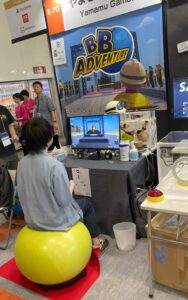
Next year’s Tokyo Game Show will be held over a 5-day period for the first time ever, running from Thursday, September 17 to Monday, September 21, 2026 at the Makuhari Messe.
